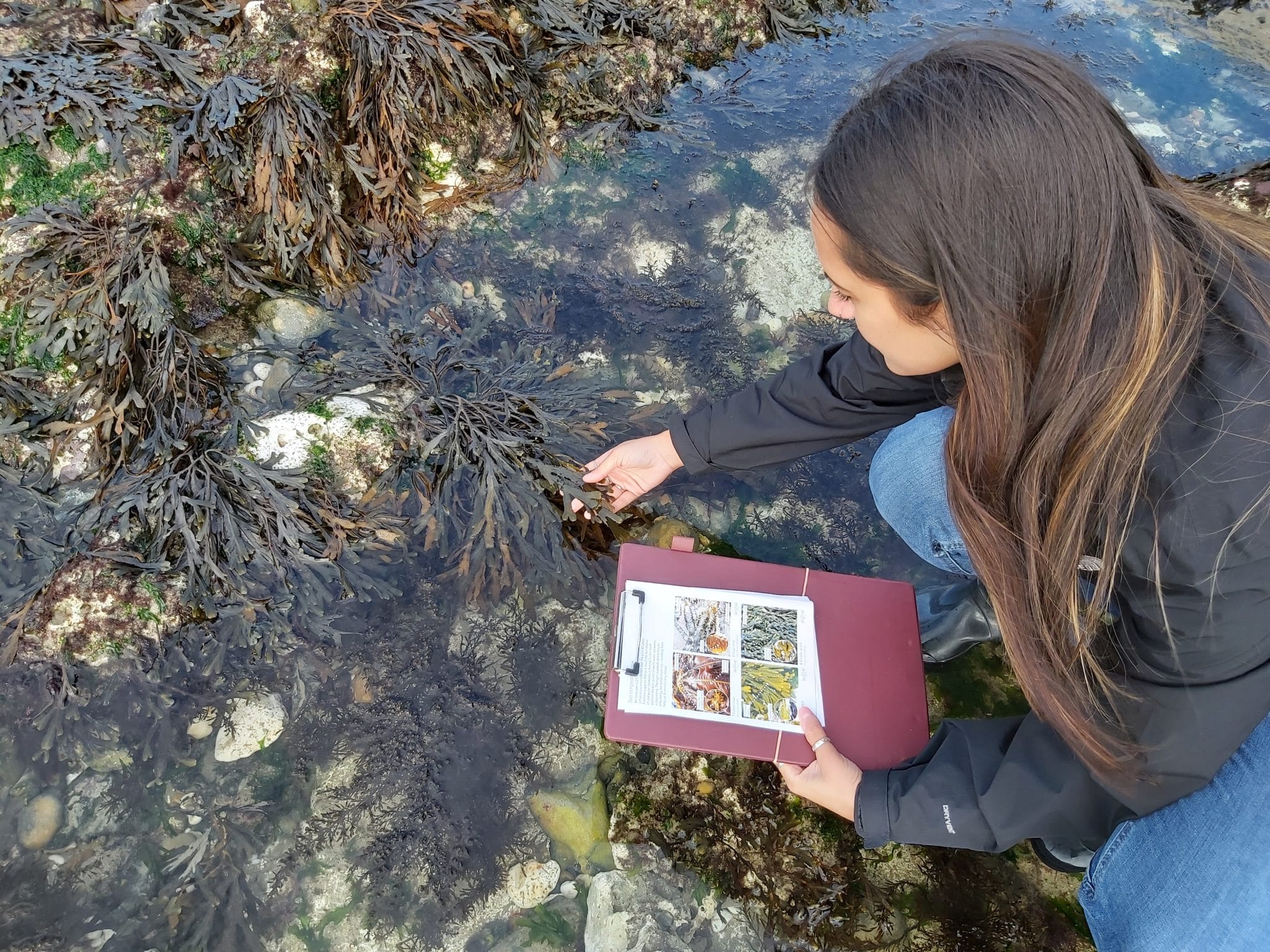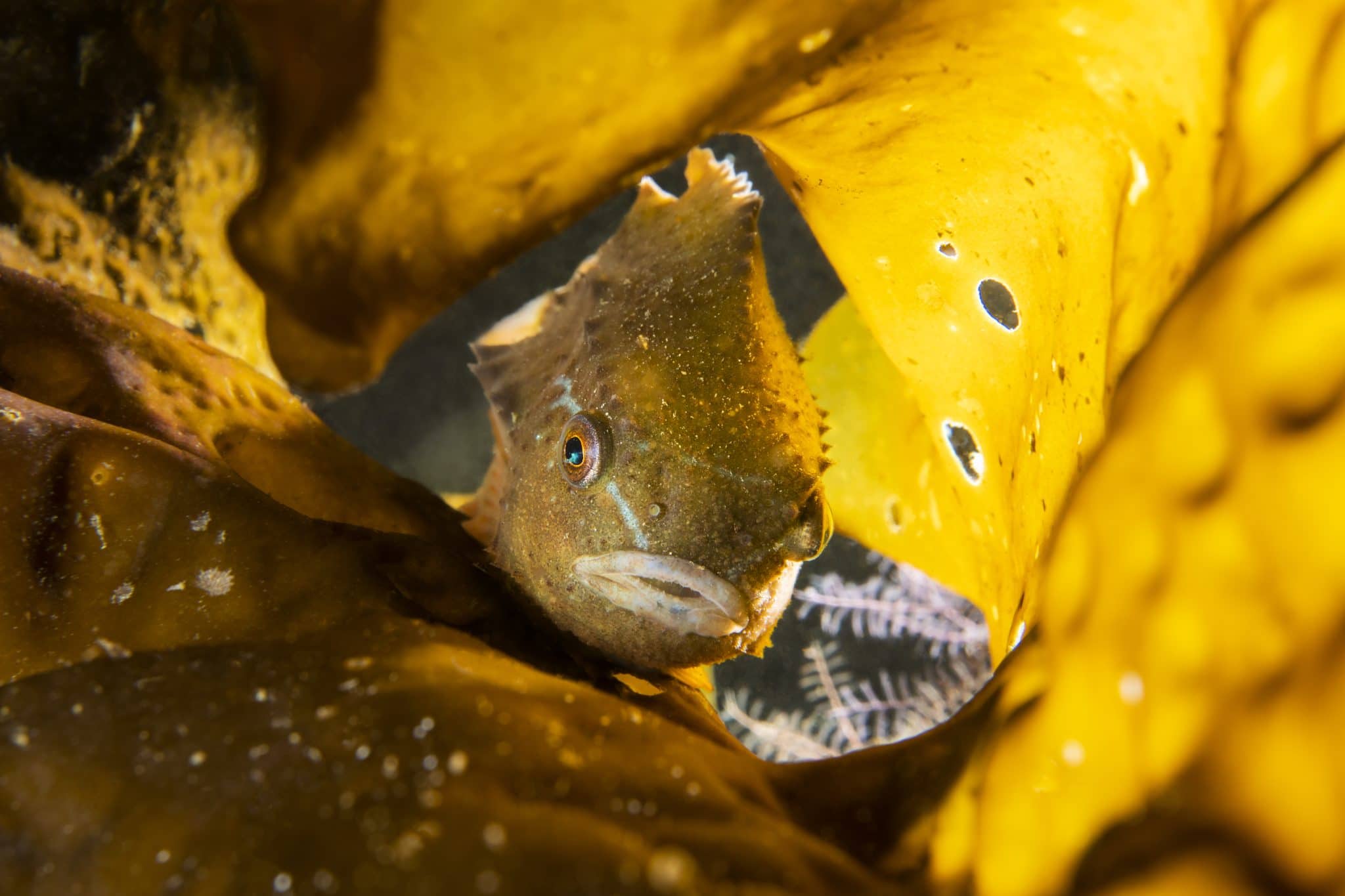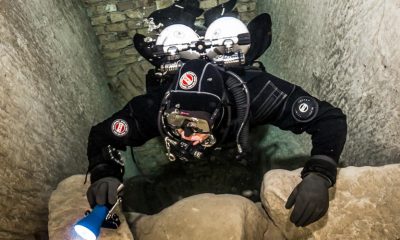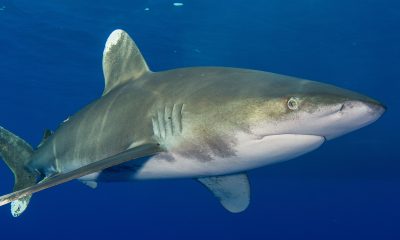Marine Life & Conservation
Big Seaweed Search Returns!
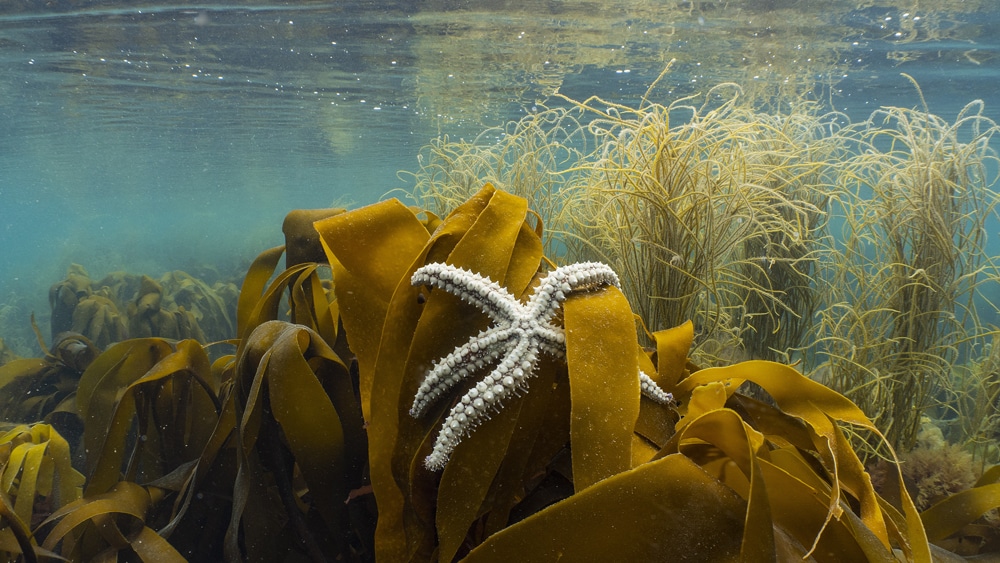
 From 23rd – 31st July 2022, the Marine Conservation Society and the Natural History Museum will be asking people across the UK to head to the coast and spot seaweed as part of community science project, Big Seaweed Search Week.
From 23rd – 31st July 2022, the Marine Conservation Society and the Natural History Museum will be asking people across the UK to head to the coast and spot seaweed as part of community science project, Big Seaweed Search Week.
Seaweed is one of the world’s great unsung heroes, playing a crucial role in marine ecosystems and helping to mitigate the effects of climate change. The UK, with over 650 species of seaweed, is home to a diverse range of species.
The Big Seaweed Search Week asks beachgoers to search for, and record, 14 of the most common seaweed species. This vital information helps the Marine Conservation Society and the Natural History Museum to map the distribution of specific species and collect long-term data that enables them to determine, as a result of seaweeds found, the impact of environmental changes in the ocean.
Amy Pilsbury, Citizen Science Lead at the Marine Conservation Society, said:“It’s easy for anyone to get involved in Big Seaweed Search Week – you don’t need to be a seaweed expert or live near the sea, just one visit to the coast will do. Studying seaweeds can tell us a lot about wider ocean and environmental conditions and the information supports real scientific research.
“Seaweed is a real ocean superstar, helping to buffer the effects of climate change, absorbing and storing carbon and protecting our coasts from waves and storm damage. The more data we gather with our Big Seaweed Searchers, the more knowledge and influence we have to protect our ocean, and seaweeds, for the future.”
As well as providing vital habitats for other species, seaweeds play a major part in marine food chains and are a rich source of nutrients for animals such as crabs and sea urchins.
Seaweed plays a critical role in combating the climate crisis. These fast-growing algae produce oxygen – more than land plants – with phytoplankton (like seaweed) providing at least half of the oxygen we breathe. Seaweed absorbs carbon more effectively than trees, storing an estimated 175 million tonnes each year – equal to 10% of the world’s car emissions.
However, populations of kelp – large brown seaweeds that are a vital ‘blue carbon’ store – are reported to be declining around the world, limiting ocean ecosystems’ abilities to absorb carbon and combat the climate crisis.
The Big Seaweed Search gathers information on species, such as kelp, which have the potential to be affected by rising sea temperatures, the arrival of non-native species and ocean acidification – environmental changes affecting the ocean and the health of marine ecosystems.
Data gathered by volunteers helps build a picture of what our shores are like, how they’re changing and informs scientists and decision-makers how best to protect them.
Juliet Brodie, Merit Researcher at the National History Museum, said:“It’s inspiring to see how the Big Seaweed Search is developing. We’re using the data submitted for our scientific research to build distribution maps which means we can track seaweed species as they respond to environmental changes over time. We’ve also been able to use over 1,000 submitted records in our work on a Red Data List of British seaweeds – which evaluates indigenous species and how endangered they are.”
It’s easy to get involved in Big Seaweed Search Week, and anyone can take part. Training videos and downloadable resources are available, including a guide which helps beachgoers to identify the seaweed species they’re likely to spot and explains what they need to do.
The survey can be carried out as an individual or in groups, and be completed on a mobile, tablet or computer.
To get involved simply:
- Register to take part and download your guide and recording form at bigseaweedsearch.org
- Choose your 5 metres[AB1] of coastline to survey
- Fill in your survey form
- Take LOTS of clear, close-up photographs for your survey to be accepted
- Submit your survey through bigseaweedsearch.org
You can visit the Marine Conservation Society for all the information you’ll need to get started.
Header Image: Paul Naylor
Marine Life & Conservation
Double Bubble for Basking Sharks

 The Shark Trust is excited to announce that, for two more days only, all donations, large or small, will be doubled in the Big Give Green Match Fund!
The Shark Trust is excited to announce that, for two more days only, all donations, large or small, will be doubled in the Big Give Green Match Fund!
Donate to Basking in Nature: Sighting Giants
The Shark Trust is hoping to raise £10k which will be doubled to £20k. This will go towards Basking in Nature: Sighting Giants. And they need YOUR help to reach they’re goal.
The Shark Trust’s citizen science project is to monitor and assess basking sharks through sightings; encouraging data collection, community engagement, and promoting nature accessibility. This initiative aims to enhance health and wellbeing by fostering a deeper connection with British Sharks.
Campaign Aims
- Increase citizen science reporting of Basking Sharks and other shark sightings to help inform shark and ray conservation.
- Provide educational talks about the diverse range of sharks and rays in British waters and accessible identification guides!
- Create engaging and fun information panels on how to ID the amazing sharks and rays we have on our doorstep! These can be used on coastal paths around the Southwest. With activities and information on how you can make a difference for sharks and rays!
- Promote mental wellbeing through increasing time in nature and discovering the wonders beneath the waves!
Donate, and double your impact. Click Here
Marine Life & Conservation
Leading UK-based shark conservation charity, the Shark Trust, is delighted to announce tour operator Diverse Travel as a Corporate Patron

 Corporate Patrons provide a valuable boost to the work of The Shark Trust. The Trust team works globally to safeguard the future of sharks, and their close cousins, the skates and rays, engaging with a global network of scientists, policymakers, conservation professionals, businesses and supporters to further shark conservation.
Corporate Patrons provide a valuable boost to the work of The Shark Trust. The Trust team works globally to safeguard the future of sharks, and their close cousins, the skates and rays, engaging with a global network of scientists, policymakers, conservation professionals, businesses and supporters to further shark conservation.
Specialist tour operator Diverse Travel has operated since 2014 and is committed to offering its guests high quality, sustainable scuba diving holidays worldwide. Working together with the Shark Trust will enable both organisations to widen engagement and encourage divers and snorkellers to actively get involved in shark conservation.
“Sharks are truly at the heart of every diver and at Diverse Travel, we absolutely share that passion. There is nothing like seeing a shark in the wild – it’s a moment that stays with you forever!” says Holly Bredin, Sales & Marketing Manager, Diverse Travel.
“We’re delighted to celebrate our 10th year of business by becoming a Corporate Patron of the Shark Trust. This is an exciting partnership for Diverse and our guests. We will be donating on behalf of every person who books a holiday with us to contribute towards their vital shark conservation initiatives around the world. We will also be working together with the Trust to inspire divers, snorkellers and other travellers to take an active role – at home and abroad – in citizen science projects and other activities.”
Paul Cox, CEO of The Shark Trust, said:
“It’s an exciting partnership and we’re thrilled to be working with Diverse Travel to enable more divers and travellers to get involved with sharks and shark conservation. Sharks face considerable conservation challenges but, through collaboration and collective action, we can secure a brighter future for sharks and their ocean home. This new partnership takes us one more valuable step towards that goal.”
For more information about the Shark Trust visit their website here.
For more about Diverse Travel click here.
-

 News3 months ago
News3 months agoHone your underwater photography skills with Alphamarine Photography at Red Sea Diving Safari in March
-

 News3 months ago
News3 months agoCapturing Critters in Lembeh Underwater Photography Workshop 2024: Event Roundup
-

 Marine Life & Conservation Blogs3 months ago
Marine Life & Conservation Blogs3 months agoCreature Feature: Swell Sharks
-

 Blogs2 months ago
Blogs2 months agoMurex Resorts: Passport to Paradise!
-

 Blogs2 months ago
Blogs2 months agoDiver Discovering Whale Skeletons Beneath Ice Judged World’s Best Underwater Photograph
-

 Gear Reviews2 weeks ago
Gear Reviews2 weeks agoGEAR REVIEW – Revolutionising Diving Comfort: The Sharkskin T2 Chillproof Suit
-

 Marine Life & Conservation2 months ago
Marine Life & Conservation2 months agoSave the Manatee Club launches brand new webcams at Silver Springs State Park, Florida
-

 Gear Reviews3 months ago
Gear Reviews3 months agoGear Review: Oceanic+ Dive Housing for iPhone


